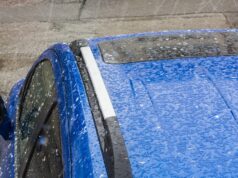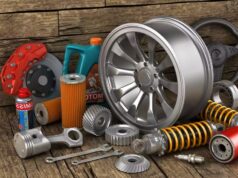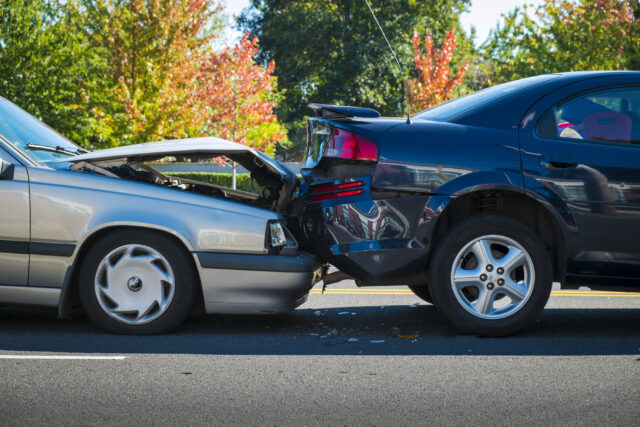
You’re standing on the side of the road after a nasty fender bender. The other driver is cursing, witnesses are coming forward and your head is spinning, trying to grasp a situation that you desperately want to be over and done with. What do you do? Who do you call? Why is the other driver pointing their finger at you as if you did something wrong? You had a green light… they ran the red light.
Before you blow a gasket (no pun intended), stop and make a mental checklist of the things you need to accomplish after the accident.
· Take stock of your physical well being and the well being of those involved in the accident.
· Gather your thoughts.
· Call the police.
· Call your insurance company.
1. Take stock of your physical well being and the well being of those involved in the accident.
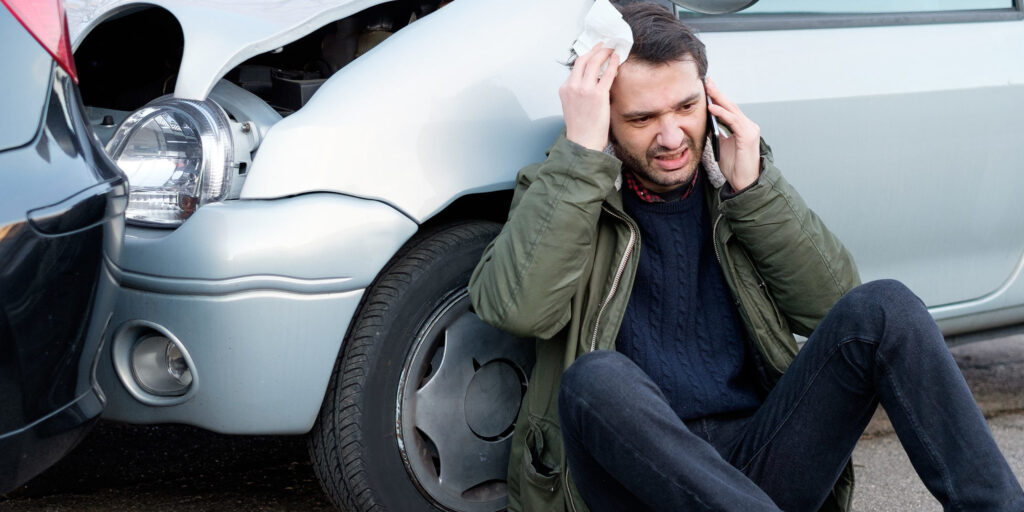
Even in minor accidents, people get injured. If your neck or back is strained, sprained, or hurt in any way, don’t be cavalier about it. Seek medical assistance at the scene.
Minor aches and pains can turn into catastrophic injuries later on. Many people have bulging discs in their back without knowing it. A bad jolt during a car accident can cause the discs to herniate, and you need therapy to prevent the problem from getting worse. Head injuries are especially dangerous. An undiagnosed concussion can be one of the most dangerous injuries you can sustain.
The key is to check yourself, then take inventory of the people around you. Your passengers, as well as the driver and passengers in the other vehicle, could be injured. It is in your best interest to determine who, what, where, when, and how. Who were the injured parties, what were their injuries, where were they sitting, when did they become injured, and how did they sustain their injuries?
2. Gather your thoughts.
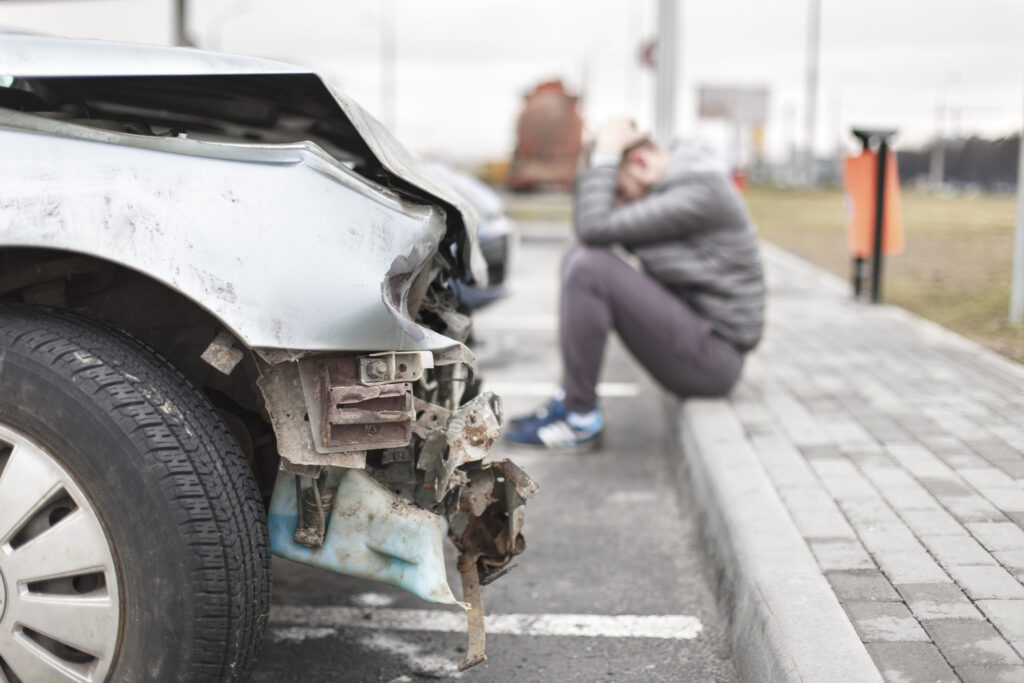
Details become hazy after an accident. The best time to write down a brief description of happened is immediately after the accident. The police will be arriving soon and you should have some idea as to the sequence of events leading up to the crash.
Were you traveling through an intersection with a green light? Did you or the other driver have a stop sign, yield sign, etc…? The driver who seems more put together at the scene has the best chance of being believed. If there are conflicting accident descriptions and you tell the officer “I don’t know” when asked about a specific detail that you should know, they may side in favor of the other driver who is certain about the events that just unfolded.
Of course, there are details that you may not recall. Of course, everyone gets flustered. Just don’t be so flustered that you can’t put a coherent story together. If you have a pen and piece of paper, jot down a few notes after taking down the other vehicle’s license plate number and description. You can refer to your note when the police officer asks you for a description. Gather your thoughts now, and it will benefit you later.
3. Call the police.
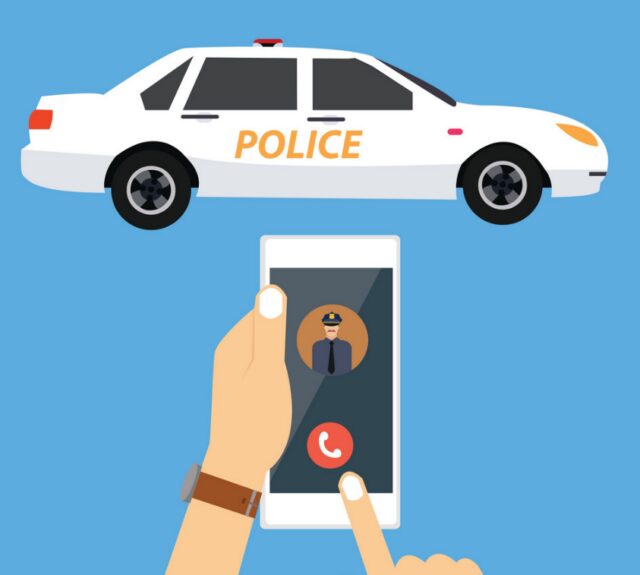
While working in the insurance industry, all too often I heard drivers tell me, “I didn’t call the police because the other driver swore they would pay me out of pocket for my damages. They didn’t want to involve the police and I felt bad for them. I didn’t want them to get a ticket.” Not calling the police is a mistake most people only need to learn once.
The majority of the time, when the police are not involved, one of the drivers gets “burned” by the other’s dishonesty. It’s all well and good to accept someone’s word that they will pay for your damage. It’s another thing entirely when that person turns around and says, “I don’t care that your body shop wants $3,000.00. That’s too steep and I will only pay $1,000.00.” This happens more times than I care to think about. The driver who is looking for payment replies, “Well, if you won’t pay, then I’ll file through your insurance company.” The other driver either says, “I don’t have insurance,” or they refuse to cooperate and it takes months for you to get the money you’re owed.
After the accident, call the police immediately. They can dispatch an ambulance if one is needed, later on, take a written report, and issue citations to the at-fault party. You may feel bad about the other driver getting a ticket but hey, you were driving safely and they weren’t. The police will allow you to give an accident description and prevent the other driver from breathing down your neck. Whether you’re at fault or not, there are a lot of bad people out there who won’t hesitate to get physical at the scene of an accident. Calling the police is the best thing you can do and you’re committing a grave error by going it alone.
4. Call your insurance company.
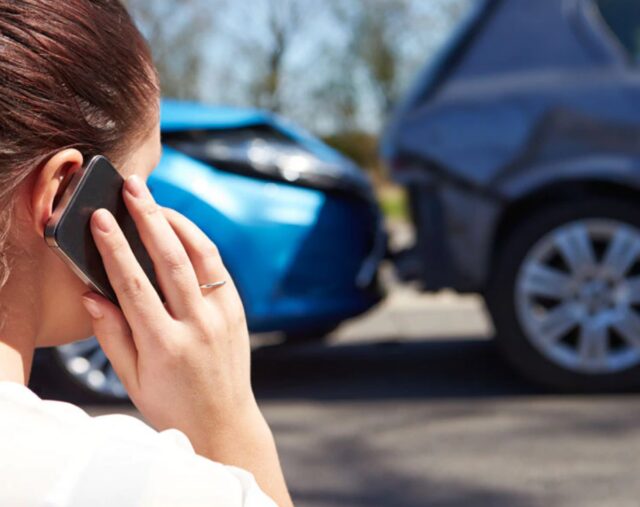
Your insurance carrier is more than happy to bill you each month for an intangible product that you hope you never need. Right now, you need them to fulfill the promise they made when you purchased a policy from them. If you have collision coverage, you will now have to decide whether to make a claim or attempt to file a claim through the other driver’s insurance carrier.
If you are determined to be at fault for the accident, your only option is to claim your collision coverage if you have it. Let your claims examiner tell you whether you’re at fault or not if you’re not sure. The police report may indicate that you are at fault, but the police report is not the final word on the subject. The examiner’s job is to investigate negligence and determine whether you are 0% at fault, 100%, or somewhere in between.
Very often police officers make mistakes or make decisions based on inaccurate data. State your case truthfully to your examiner and don’t fret over being at fault or not. What’s done is done. Accidents happen, and you shouldn’t beat yourself up over them.
Your examiner will contact all parties involved, take statements when necessary, and handle the claim for you. They should be up to date on the vehicle traffic laws of the state and be ready to answer any questions you may have.
One quick note: Don’t call your claims examiner unless you have a question that pertains to the accident. They have typically inundated with phone calls and their job is extremely labor-intensive. Also, claims examiners are not supposed to tell you whether your insurance rates will go up as a result of the accident, so don’t ask. This sort of thing is handled by underwriting departments within insurance companies. If your rates are going to go up, you won’t know until you get your next renewal bill.
Again, don’t ask, because you will only annoy the examiner and waste time.
Some final tips:

Get all the information you can at the scene of the accident. Names, insurance information, year/make/model of all vehicles involved.
Don’t get emotional. Your instinct may be to ask the other driver whether they’re insane. Avoid this, as you will only create a problem at the scene.
An accident investigation is not a perfect science. If the police make a mistake, try to notify them immediately, but don’t point fingers. An angry police officer is your worst enemy at the scene of an accident, and you want them on your side.
Never give out any insurance policy information such as limits of coverage or anything to that effect.
If you’re uncertain about the other driver’s state of mind, stay in your vehicle with your doors locked. You can speak to the other driver through a window that is slightly rolled down and can get out when the police arrive.
Don’t ignore the tickets or fines. If you were speeding at the time of the accident, you might be charged with a speeding ticket that comes with fines. Decide if you’re going to simple pay the fine or fight the ticket. If you decide on fighting the ticket, it might be another process where you might require a lawyer, but there’s an option to enroll in these options for easiest online traffic schools and take a defensive driving course, depending on your state. Check this option and it might easily be a way to have the authorities dismiss your ticket.
Keep a disposable camera in your vehicle and take pictures of all damage if you can. In most “caused” accidents (accidents where the other driver purposely stops short to cause an accident or something similar), the last thing the other driver wants is for you to take a picture of their license plate or rear damage. Frauds who engage in these types of scams, want to use these vehicles over and over. If you take pictures, your insurance company can use them to help defend you later on. Take pictures of the entire area around the accident scene as well. The pictures can be invaluable to your claims representative and you later on.

